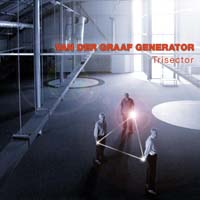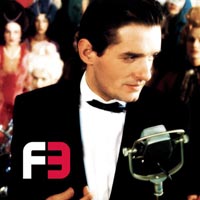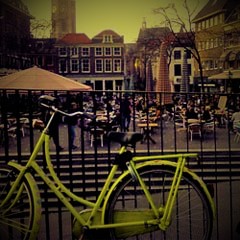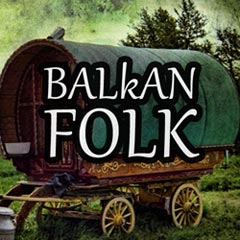2022-11-01
Emir Kusturica: The Story of a Musical Journey
Emir Kusturica is a name widely recognized by the world's music enthusiasts. Born in Sarajevo, Yugoslavia - now Bosnia and Herzegovina - Kusturica pursued his passion for music and film and went on to become one of the most notable figures in the industry. Starting from his humble beginnings to the height of his career, this article will take you through the life and work of Emir Kusturica.
Kusturica's love for music began during his early years growing up in Bosnia and Herzegovina. He learned to play the guitar and by the time he was 16, he already had a band named Zastava which played at local events. During college, he was associated with Mado Robin, a rock group that became popular in Yugoslavia. Kusturica's interest in music continued, and he even composed music in his spare time while directing films.
In 1993, Kusturica formed the No Smoking Orchestra with the violinist Dejan Sparavalo, other members of Zastava, and some other local musicians. They were a unique sound that drew from both traditional and modern genres. A blend of Roma, Balkan rock, and punk rock music, their sound was something that had never been heard before. Their first album, named Papa's Film, was released in 1997. Following the release of their debut album, the band went on to release more hit albums such as Unza Unza Time that gained them international recognition.
Kusturica's music is heavily influenced by traditional Balkan folk music and Gypsy music. He blends these styles with modern electronic instruments into an eclectic sound that has won over fans worldwide. The music is dynamic, lively, and has a tempo that will get you up and dancing. The lyrics are humorous and philosophical, focusing on themes related to life, culture, and politics.
Kusturica's most famous compositions include Ederlezi, which appeared on the soundtrack of his film Dom za vesanje (1988), and Duj Sandale from his 1995 film Underground. Both songs were instant classics that gained him global recognition. His other popular songs include Bubamara, Was Romeo Really a Jerk?, and Devil in the Business Class. All of these songs portray his unique sound that draws from the rich musical background of the Balkans.
Conclusion: Emir Kusturica remains one of the most significant figures in the world of music and film. With his unique compositions that blend traditional Balkan music with modern instruments and electronic beats, he has created a sound that has won over fans worldwide. From his early days in Yugoslavia to the height of his career, he has maintained his unwavering passion for music and has continuously pushed the boundaries of the industry. His music is an invitation to a world of lively rhythms and thought-provoking lyrics, and it is no surprise that it continues to be celebrated today.
Kusturica's love for music began during his early years growing up in Bosnia and Herzegovina. He learned to play the guitar and by the time he was 16, he already had a band named Zastava which played at local events. During college, he was associated with Mado Robin, a rock group that became popular in Yugoslavia. Kusturica's interest in music continued, and he even composed music in his spare time while directing films.
In 1993, Kusturica formed the No Smoking Orchestra with the violinist Dejan Sparavalo, other members of Zastava, and some other local musicians. They were a unique sound that drew from both traditional and modern genres. A blend of Roma, Balkan rock, and punk rock music, their sound was something that had never been heard before. Their first album, named Papa's Film, was released in 1997. Following the release of their debut album, the band went on to release more hit albums such as Unza Unza Time that gained them international recognition.
Kusturica's music is heavily influenced by traditional Balkan folk music and Gypsy music. He blends these styles with modern electronic instruments into an eclectic sound that has won over fans worldwide. The music is dynamic, lively, and has a tempo that will get you up and dancing. The lyrics are humorous and philosophical, focusing on themes related to life, culture, and politics.
Kusturica's most famous compositions include Ederlezi, which appeared on the soundtrack of his film Dom za vesanje (1988), and Duj Sandale from his 1995 film Underground. Both songs were instant classics that gained him global recognition. His other popular songs include Bubamara, Was Romeo Really a Jerk?, and Devil in the Business Class. All of these songs portray his unique sound that draws from the rich musical background of the Balkans.
Conclusion: Emir Kusturica remains one of the most significant figures in the world of music and film. With his unique compositions that blend traditional Balkan music with modern instruments and electronic beats, he has created a sound that has won over fans worldwide. From his early days in Yugoslavia to the height of his career, he has maintained his unwavering passion for music and has continuously pushed the boundaries of the industry. His music is an invitation to a world of lively rhythms and thought-provoking lyrics, and it is no surprise that it continues to be celebrated today.
Tag: Emir Kusturica, musical biography, best songs, playlist
2024-06-20
Get Ready to Rock Out with Deep Purple!
Are you a fan of the legendary rock band, Deep Purple? If not, get ready to change your tune! This blog post is sure to evoke both laughter and admiration from all the listeners out there. We’re going to take an honest look at something critics love about Deep Purple’s music as well as something positive they can appreciate...read more
2022-11-01
The Musical Journey of Omar Apollo: From Humble Beginnings to Renowned Fame
If you are a fan of alternative R&B, then you have almost certainly heard of Omar Apollo. The Mexican-American singer, songwriter, and guitarist has become a staple in the genre over the past few years with his unique sound and style...read more
2022-11-01
Los Delinqüentes - The Rebel Troubadours of Flamenco Fusion
Los Delinqüentes was a seminal band in the Spanish music scene, whose eclectic style and poetic lyrics blended flamenco, rock, blues, reggae, and rumba into a genre-defying sound. The band was formed in Jerez de la Frontera, Andalusia, in 1998, by singer and guitarist Diego Pozo El Ratón and guitarist and singer Miguel Ángel Benítez Moreno...read more
2022-01-01
Exploring the Layers of Van der Graaf Generator: From Experimental to Iconic
Van der Graaf Generator’s career has spanned five decades and they have earned a loyal and passionate fan base who are drawn to their iconic sound. However, the group is also known for being experimental and challenging, having pushed boundaries at various points throughout their history...read more
2022-11-01
A Legendary Musical Career: The Life and Legacy of Falco
If you're a fan of Austrian music or the genre of New Wave, you’ve no doubt heard of Falco. This talented musician had an explosive career that took the music world by storm...read more
SUGGESTED PLAYLISTS








